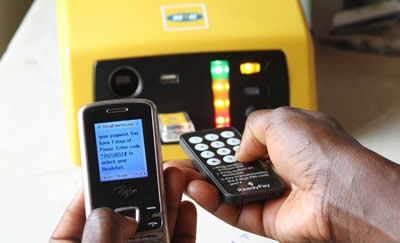UNCTAD publishes new Rapid eTrade Readiness Assessments of three African countries during Africa eCommerce Week in Nairobi, Kenya.
Mobile connectivity is fueling e-commerce in Madagascar, Uganda and Zambia, priming them to better engage with the digital economy, assessments by UNCTAD of the prospects that new technologies can boost trade in the three African countries have found.
The three reports, which demonstrate readiness across seven policy areas in the UNCTAD-led e-Trade for all partnership, were launched on 10 December at the opening of the first Africa eCommerce Week in Nairobi, Kenya. Recommendations in the reports lay the ground for e-commerce stakeholders to act, UNCTAD Secretary-General Mukhisa Kituyi said.

The benefits of the report recommendations will not be felt unless they are effectively implemented.
This will require integrating specific elements of the recommendations into national development plans, government and private sector initiatives, ICT policies and strategies, regulatory frameworks and development projects
Mukhisa Kituyi, Secretary-General of UNCTAD
Although e-commerce and digital entrepreneurship are snowballing on the continent – more than 21 million Africans shop online – countries are at very different stages of development, the UNCTAD reports show.
For instance, Uganda’s mobile transactions amounted to a staggering $16.3 billion, half the national GDP. But Zambia, where mobile money is gaining momentum, lags since Zambians prefer cash-on-delivery for e-commerce transactions. In Madagascar, only 6% of the population use the Internet and only 4% have bank accounts. But this means retailers are more likely to accept online payments via mobile phone.
All three countries face challenges in expanding information, communication and technology (ICT) infrastructure, improving trade logistics and access to financing for e-commerce ventures. The reports offer insight into the country-specific elements that could help unlock certain areas of the digital economy.
Strengthening the dialogue
The Uganda assessment, for example, recommends the establishment of a multi-sectoral task force on e-commerce to help create a common understanding of the opportunities and challenges associated with it. Doing so would also improve public-private coordination, the report outlines.
In Zambia, the assessment proposes accelerating the existing national addressing and postcode project. Since 2014, more than 60,000 house number and street number signs have been installed. Weak physical addressing remains a barrier for local e-commerce vendors. This means goods ordered online cannot always be delivered efficiently and reliably.
The Madagascar assessment highlights the need for a more efficient financing system for ICT and e-commerce start-ups. It recommends strengthening the dialogue between the private sector, the government’s Economic Development Board of Madagascar, technology start-ups and banks, who can together define the most common needs in the field of the digital economy.
This would help stimulate investments in micro, small and medium-sized enterprises, which are the engine of the local economy.
The reports consider seven key areas: overall e-commerce readiness and strategy, ICT infrastructure and services, trade logistics and facilitation, payment solutions, legal and regulatory frameworks, e-commerce skills development, and access to finance.
E-commerce on the agenda
The governments of Madagascar, Uganda and Zambia welcomed the new assessments at a special ministerial roundtable at Africa eCommerce Week.
“The globalization of trade requires the use of ICTs to gain market share. Developing e-commerce means shortening distances as well as transaction times,” Christian Ntsay, prime minister of Madagascar, said. “It is vital for developing countries such as Madagascar, to exploit the opportunities available to them through e-commerce.”
Ugandan state minister for cooperatives, Frederick Gume Ngobe, said: “E-commerce is an impetus for entrepreneurship, innovation and business development that can benefit all the people in Uganda.”
The permanent secretary of Zambia’s commerce ministry, Kayula Siame, said the report offered a roadmap for Zambian policy.
“The assessment provides a roadmap for what needs to be done in different policy areas, but we need to coordinate our activities,” she said. “A national e-commerce strategy for Zambia would help align different stakeholders towards a common vision.”
eTrade for all
The Government of Germany funded the three Rapid eTrade Readiness Assessments as part of its support to the eTrade for all initiative. The initiative provides capacity-building in e-commerce development and helps connect the dots between beneficiary countries, donors and development partners.
Since the launch of the Rapid eTrade Readiness programme in 2016, 15 assessments have been undertaken for Bhutan, Burkina Faso, Cambodia, Lao People’s Democratic Republic, Liberia, Madagascar, Myanmar, Nepal, Samoa, Senegal, Solomon Islands, Togo, Uganda, Vanuatu and Zambia.
With the support of key donors, at least 10 additional least developed countries and other developing countries will benefit from the programme in 2019.



